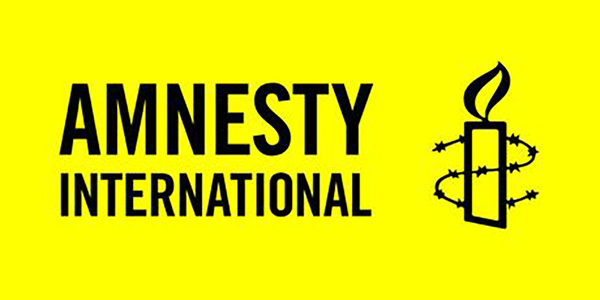Any compromise on women’s rights in a peace deal between the Afghan government and the Taliban would betray two decades of hard-won progress for Afghan women, said Amnesty International, ahead of a new campaign highlighting the incredible work of women human rights defenders in Afghanistan.
The 16 Days of Activism against Gender-Based Violence is an annual international campaign starting on 25 November – the International Day for the Elimination of Violence against Women – and running until 10 December, Human Rights Day. The campaign celebrates Women Human Rights Defenders in every region of the world who fight gender-based discrimination and stand up for women’s rights. It calls on governments to prevent, investigate, and prosecute violence against women and girls.
At a moment when the rights of Afghan women are at grave risk of being traded off in a peace deal with the Taliban, Amnesty International is working with women human rights defenders in Afghanistan to showcase their powerful stories.
“Having spent two decades fighting hard to win their most basic rights, Afghan women now face the real possibility of seeing these gains bargained away. The advances made on women’s rights must not be rolled back in this peace process – the human rights of all Afghans, especially women and girls, must be at the heart of any eventual agreement,” said Samira Hamidi, Amnesty International’s Afghanistan Campaigner.
“As the stories we’ve gathered powerfully demonstrate, Afghan women have been at the forefront of efforts for peace and stability in Afghanistan. They have played a vital role in ensuring that issues such as human rights, justice, accountability, victims’ rights, and crimes against humanity are on the agenda in the ongoing peace efforts.”
Under the Taliban, women and girls were denied a whole range of human rights, including the rights to education, health, free movement, and political and social participation.
Since the Taliban regime ended in 2003, important strides have been made on women’s rights. There are now 3.3 million girls in education, and women are politically, economically and socially engaged. Despite ongoing conflict, Afghan women have become lawyers, doctors, judges, teachers, engineers, athletes, activists, politicians, journalists, bureaucrats, business owners, police officers, and members of the military.
However, major obstacles and challenges remain. Violence against women is rife, the participation of women at all levels of government remains limited and, according to UNICEF, 2.2 million Afghan girls still do not attend school.
In this year’s 16 Days of Activism campaign, Amnesty International will give a platform to women politicians and activists from Kabul and other provinces, who have been some of the pioneers in securing rights for Afghan women. These women share a common vision of a peaceful Afghanistan where women enjoy their rights as citizens, including their rights to study, to work, and to be independent.
“A just, sustainable peace must uphold the human rights of all of Afghan society. Women are among those who have suffered most and their full participation in the peace process is absolutely essential,” said Samira Hamidi.
“The progress women have been making is starting to redress the near-total exclusion they have faced in the past, and shows how central they are for the future of the country, but much work remains to be done. Any peace deal must not only protect the gains already made but commit to further advancing the rights of Afghan women.”
Background
On each of the 16 days, the campaign will feature social media video clips of women human rights defenders in Afghanistan discussing what peace means to them, what the meaningful participation of women in the peace process should look like, and their ideas of equality, justice and human rights – now and in a future Afghanistan.
In 2019, Amnesty International featured 16 Women Human Rights Defenders in its 16 days of activism campaign.
Amnesty International is calling on the international community to remain fully committed to protecting the human rights of women and girls in Afghanistan at this week’s Geneva Quadrennial Pledging Conference on Afghanistan (23-24 Nov)






















